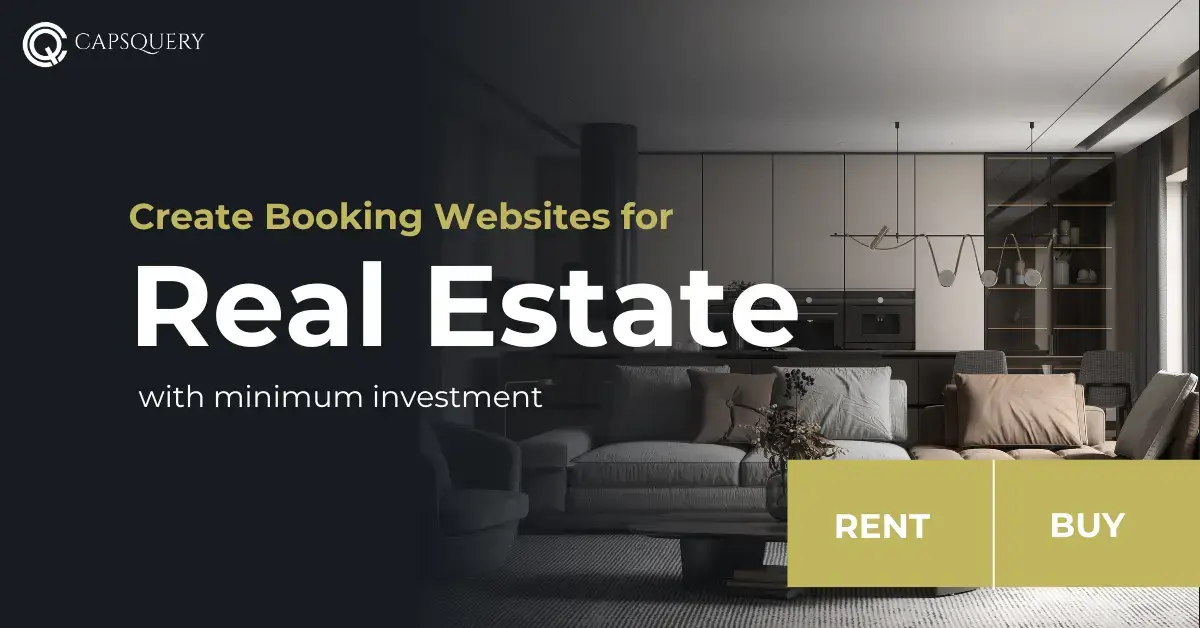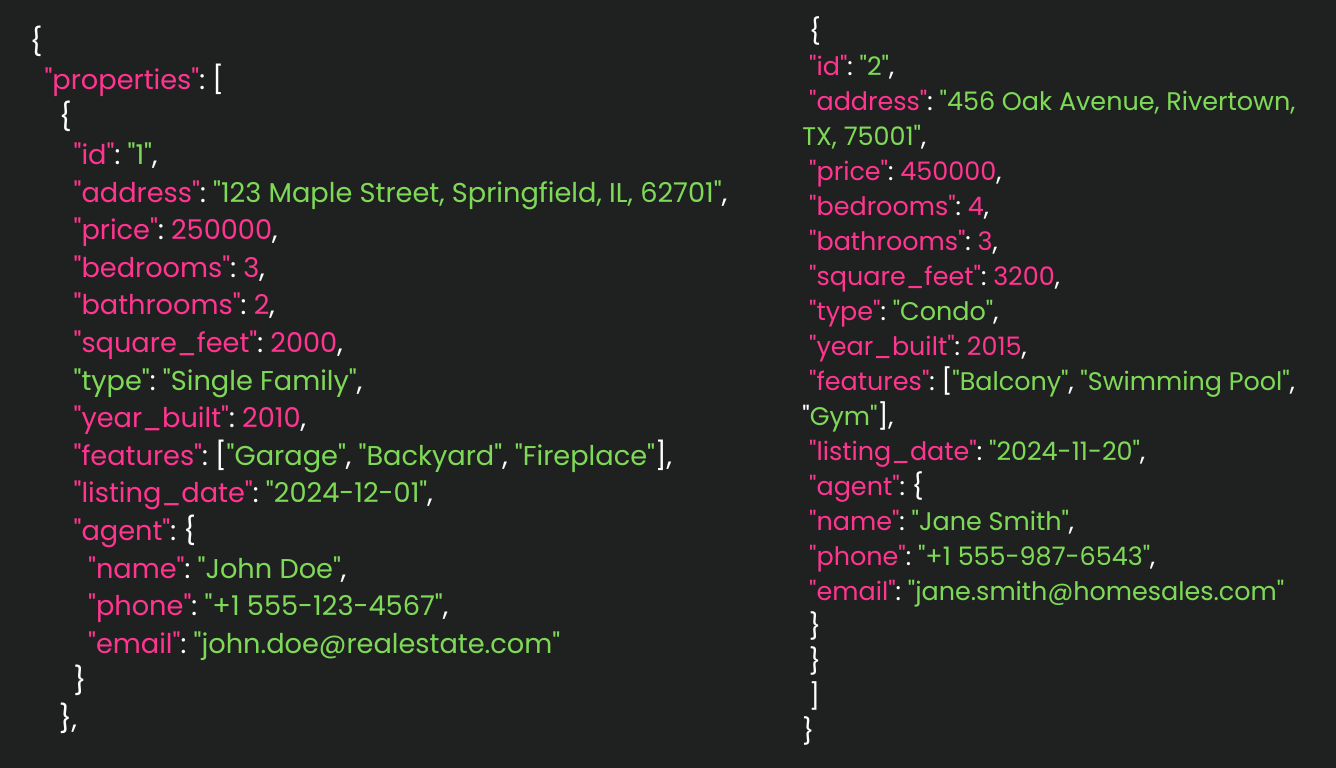







Gone are those days when an individual had to visit properties physically or hire a real estate agent for booking. Nowadays, tenants or buyers prefer digital means to book a property rather than a traditional way of reservation. Hence, real-estate businesses actively incorporate digital solutions to manage their staff and administrative work remotely, including booking, inventory, listing, and other services. Now the question is how to list live data of property listings in real-time, what features you need, and ways to integrate booking systems into a real estate website. Here’s a comprehensive guideline to start your property booking website from scratch for better conversions.
Whenever we talk about real estate or property listing websites, we use these two terminologies- MLS & IDX. So, what are their roles, and how are they interconnected with each other in the development process of the real estate website?


MLS (Multiple Listing Service) is a set of databases where most of the real estate search service providers list their homes & properties for sale and rent. Internet Data Exchange/IDX is an online program that facilitates real estate agents and property brokers to show MLS listings in real-time on their sites. Even though they play active roles in real estate websites, their features and functionalities are distinct. Let’s find out their benefits and how to list live real estate data with real-time feed through IDX.
As said earlier, IDX helps you integrate MLS listing into your property booking site. It gives visitors smooth, user-friendly, and enhanced search results directly from your platform. The real estate market is highly competitive, and leveraging IDX fosters your client retention rate and loyalty. It helps you capture leads through real estate agents whenever a new property seeker drops their contact details in exchange for custom search options or listing information. An IDX-optimized website has built-in data analytic tools that help brokers or agents with information about market trends to improve their sales strategies and site performance. Note that a broker can upload MLS listings on their site, but not every MLS system engages with IDX as it comes up with several policies and regulations. For instance, real estate agents cannot list a property on their site without the owner’s consent.


When it’s a matter of listing data accuracy, MLS shares up-to-date data, such as pictures, features, and descriptions of the property from the respective area (City or Region). It’s a collaborative system where several agents can check the listings of other brokers. It shares the details that make the collected data accessible to the clients. For instance, if a buyer visits your brokerage platform and gets limited property listings that the firm’s owner has listed, then it diverts the mind of a potential buyer. Therefore, integrating an MLS system provides information on all listings from other brokers in the same area.
Creating a property booking or listing website with a user-friendly interface and appropriate features needs experienced hands. As a web development agency, we will suggest the best tech stacks and fundamental components for developing your real estate listing website:
It would be best to pick a proper web address or a domain name before considering anything else for your website development. Using a custom domain name helps you improve the site’s branding relevant to user search with better credibility. Try to get a unique and meaningful domain address that validates your business nature. You can also opt for localized extensions like “.com.au” or “.co.uk” to target a specific region. For instance, you run a real estate industry covering a few specific locations in Australia or the United States, then select a ccTLD (Country code top-level domain) to reach your expected customers.
After getting a domain name, you need to organize a space/server to store your site’s data files and keep it accessible to the web. Without a secure digital repository, no one could access the web content. Choose dedicated hosting to build a property booking website with high-end functionalities and large data resources. Otherwise, shared or VPS hosting is a cost-effective solution for medium and small-scale businesses. Obtain an SSL certificate with your hosting plan to keep a site safe from cyber-attacks and data leaks.
Integrating suitable tech stacks is a primary factor in building your property listing website. Here are the two best approaches by considering flexibility, scalability, and cost-effectiveness.




A custom property booking website needs a longer development time and a high budget, depending on the complexities of the features. If you need to promote your brand’s identity with scalability and growth, then custom coding is the profitable approach in the long run.
PMS is one of the primary elements of your property management and booking website. It is an important hub or software that allows property owners and admins to manage reservations, front desk, accounting, revenue analysis, and other tasks. It refines connectivity with guests and simplifies the reservation process through personalized booking confirmation emails or texts. With PMS, real estate agents can centralize the booking process from various 3rd-party channels in one place and reduce the complications.
As a real estate professional, you need to specify the roles of users and admins to run the daily tasks effortlessly. The admin panel is a centralized control space that allows you to view and manage system settings, booking records, add or remove listings, platform visitors, social sharing, and other admin-oriented functions.
You need to consider mobile application development as a key element for your real estate listing site. It is essential to prioritize mobile responsiveness with all other core development components. Visitors prefer sites with a better mobile-friendly interface, including easy navigation and page scrolling options.
It is the most significant space for your real estate site that helps buyers check properties according to their criteria. This page may contain a listings gallery with high-quality images, search filters (Number of rooms, area of the property, location, etc.), a map listing view using external APIs, breadcrumb navigation, inquiry form, and eye-catching CTAs. There are different ways to show real estate listings on your site. There are several ways to show listings on your real estate site. The most fruitful ways are using databases, direct user contribution, and API integrations.
Modern buyers prefer an easy-to-operate platform with fewer complexities in the registration process to create a user account on your listing site. A typical property listing website generally has 3-user categories- Tenants/Buyers, Sellers, and Real estate agents. You can assign different features and roles to the respective users. For instance, you can add features for property buyers and tenants like advanced search filters, map view listings, image gallery, mortgage calculator, price comparison, quick chat, and social media links.
For real estate agents, you can give access to listings, user accounts, interactive map views, admin dashboard, payment integration, documentation services, and platform management.
Placing an interactive map view listing option helps users or buyers pinpoint their desired property as per the location. You can integrate map view listings through API or plugins. It displays the demographic data and nearby places, such as schools, universities, markets, hospitals, etc.
For property listing businesses, it is crucial to provide real-time data to sustain in this real estate market. With a predictive data analytic tool, you can seamlessly categorize systematic and non-systematic data. It enables investors to get valuable insights to manage their portfolios. It empowers real estate professionals to target suitable tenants or buyers, and marketing strategies to determine investment profitability.
You need to integrate a reliable payment processor to expand your online transactions and business opportunities. You can keep different payment models, such as subscription-based plans, construction-linked plans, commission fees, featured listings, and more. Providing multi-payment gateway options like Stripe, PayPal, and Square helps your customers to choose their preferred ones. As a web development company, we can help you to integrate the right payment gateway using the respective API endpoint. It also reduces the possibility of booking abandonment and helps you gain better credibility.
You can adapt several means to incorporate features and functionalities into your site. API connects your platform with external system software to perform specific functionalities. For the real estate industry, you can utilize APIs in several ways, like listing data through MLS, data processing & automation through CRM integration, real-time data display using IDX, revenue management, and more. Another quickest way is to integrate a plugin to add several property listing functions to your real estate website. So, let’s check how to integrate APIs into your site to collect and exchange information from different resources.
JSON & XML are the two data exchange or sterilization file formats that initiate the communication between two systems using an API. Both are applicable for data representations, but JSON is the newest, most flexible, and secure technology over XML. JSON creates a map-type structure by using key-value pairs, while XML shows data in tree format. Here’s a quick example that shows the data representations of the same information.
The first sample shows a JSON code that lists 2-real estate properties with random names, addresses, bedrooms, square footage, listing date, and agent information:


The second sample represents the structure of an XML file to list two real estate properties with the same details:
<?xml version=”1.0″ encoding=”UTF-8″?>
<real_estate_listings>
<listing>
<id>1001</id>
<title>Luxury 3-Bedroom Apartment in Downtown</title>
<description>
This modern 3-bedroom apartment offers stunning views of the city skyline, spacious living areas, and high-end finishes.
</description>
<price currency=”USD”>950000</price>
<address>
<street>123 Main St</street>
<city>Metropolis</city>
<state>NY</state>
<zip>10001</zip>
<country>USA</country>
</address>
<bedrooms>3</bedrooms>
<bathrooms>2</bathrooms>
<square_feet>2000</square_feet>
<listing_date>2024-12-01</listing_date>
<status>Available</status>
<agent>
<name>John Doe</name>
<phone>+1-555-1234</phone>
<email>johndoe@realestate.com</email>
</agent>
<images>
<image>https://www.example.com/images/apt1.jpg</image>
<image>https://www.example.com/images/apt2.jpg</image>
</images>
</listing>
<listing>
So, as an API integration specialist and development agency, we will suggest using JSON for data storage and mobile apps. XML is better for handling complex data structures and scrutinizes errors deeply.
From the listing, booking systems, payment processing, and SEO features to other real estate-based operational tasks, a plugin is a tailor-made solution for non-technical users and experienced web developers. WordPress listing plugins like WP-Property, Directorist, GeoDirectory, HivePress, and more can meet your property listing requirements. You can read more about their features and integration processes (https://capsquery.com/blog/list-of-best-business-directory-plugins-for-wordpress-website/). The purpose of using WP plugins is reusability, cost-effectiveness, no coding limitations, easy integrations, and community support.
A standard property listing site contains functionalities and features that allow real estate agents/brokers to sell properties and buyers to get a desired home. In this article, we have categorized the necessary technologies and effective means to develop a real estate website under your budget. If you need to enhance your ordinary site and strategically improve sales growth, then as a reliable property listing web development firm, we will give you ultimate solutions for the long term.
Website Development | Mobile App Development | Application Development
We will definitely get back in touch with you over mail within 12 Hours.
In-case you have not heard from us within 12 hours, kindly check your spam once.
I'm a software consultant. I've 7+ years of industry experience. I'd love to connect with you and brainstorm your custom software needs. It's my responsibility to find you the best solution.
ANAND GUPTA
Drop your details and we'll get in touch with you within 12 hours.
Reach us for
Talk to us